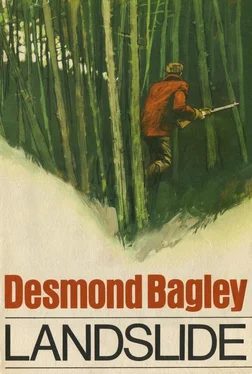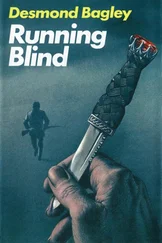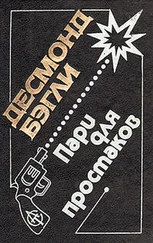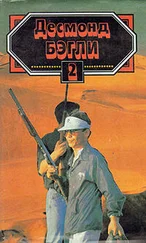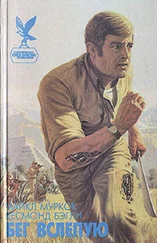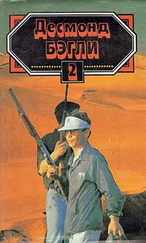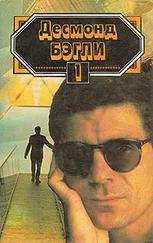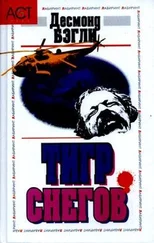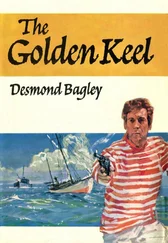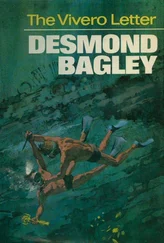I got tired of hearing the refrain — I don’t know why. The depressing part of it was that they really didn’t know why, they didn’t know that Bull Matterson had screwed the lid down tight on the name of Trinavant. He could have given the Hitlers and Stalins a pointer or two on thought control, and more and more I was impressed at the effort which he must have put into this operation, although I still had no idea as to why he had done it.
‘Where are the Trinavants buried?’ I asked Mac.
‘Edmonton,’ he said briefly. ‘Bull saw to it.’
The Trinavants did not even have a resting-place in the town they had built.
After a day’s intensive poking and prying into the Trinavant mystery I decided to give Fort Farrell a miss next day. If two conversations had caused Bull Matterson to react, then that day’s work must be giving him conniptions, and acting on sound psychological principles, I wanted to be hard to find — I wanted to give him time to come really to the boil.
That cut out investigating the site of the dam, so I decided to go up to Clare Trinavant’s cabin. Why I wanted to go there I didn’t know, but it was as good a place as any to keep out of Matterson’s way and maybe I could get in a day of deep thought with some fishing thrown in.
It was a hundred and twenty miles on rutted, jolting roads — a wide swing round the Matterson holdings — and when I reached the cabin I was sore and aching. It was even bigger than I remembered, a long low sprawling structure with a warm red cedar shingle roof. Standing apart from it was another cabin, smaller and simpler, and there was smoke curling from the grey stone chimney. A man emerged carrying a shotgun which he stood leaning against the wall not too far from his hand.
‘Mr Waystrand?’ I called.
‘That’s me.’
‘I have a letter for you from McDougall of Fort Farrell.’
McDougall had insisted on that because this was Jimmy Waystrand’s father, whose allegiance to Clare Trinavant was firm and whose attitude to Bob Boyd was likely to be violent. ‘You cut his son and you insulted Clare — or so he thinks,’ said Mac. ‘You’d better let me straighten him out. I’ll give you a letter.’
Waystrand was a man of about fifty with a deeply grooved face as brown as a nut. He read the letter slowly, his lips moving with the words, then gave me a swift glance with hard blue eyes and read it again very carefully to see if he’d got it right first time. Then he said a little hesitantly, ‘Old Mac says you’re all right.’
I let out my breath slowly. ‘I wouldn’t know about that — it’s not my place to say. But I’d trust his judgment on most things; wouldn’t you?’
Waystrand’s face crinkled into a reluctant smile. ‘I reckon I would. What can I do for you?’
‘Not much,’ I said. ‘A place to pitch a camp — and if you could spare a steelhead from the creek there, I’d be obliged.’
‘You’re welcome to the trout,’ he said. ‘But there’s no need to camp. There’s a bed inside — if you want it. My son’s away.’ His eyes held mine in an unwinking stare.
‘Thanks,’ I said. ‘That’s very kind of you, Mr Waystrand.’
I didn’t have to go fishing for my dinner, after all, because Waystrand cooked up a tasty hash and we shared it. He was a slow-moving, taciturn man whose thought processes moved in low gear, but that didn’t mean he was stupid — he just took a little longer to reach the right conclusion, that’s all. After we had eaten I tried to draw him out. ‘Been with Miss Trinavant long?’
He drew on his pipe and expelled a plume of pale blue smoke. ‘Quite a time,’ he said uninformatively. I sat and said nothing, just waiting for the wheels to go round. He smoked contemplatively for a few minutes, then said, ‘I was with the old man.’
‘John Trinavant?’
He nodded. ‘I started working for John Trinavant when I was a nipper just left school. I’ve been with the Trinavants ever since.’
‘They tell me he was a good man,’ I said.
‘Just about the best.’ He relapsed into contemplation of the glowing coal in the bowl of his pipe.
I said, ‘Pity about the accident.’
‘Accident?’
‘Yes — the auto crash.’
There was another long silence before he took the pipe from his mouth. ‘Some folks would call it an accident, I suppose.’
I held my breath. ‘But you don’t?’
‘Mr Trinavant was a good driver,’ he said. ‘He wouldn’t drive too fast on an icy road.’
‘It’s not certain he was driving. His wife might have been at the wheel — or his son.’
‘Not on that car,’ said Waystrand positively. ‘It was a brand-new Cadillac two weeks old. Mr Trinavant wouldn’t let anyone drive that car except himself until the engine got broken in.’
‘Then what do you think happened?’
‘Lots of funny things going on about that time,’ he said obscurely.
‘Such as?’ I prompted.
He tapped the dottle in his pipe on the heel of his boot. ‘You’re asking a lot of questions, Boyd; and I don’t see why I should answer ’em, except that old Mac said I should. I ain’t got too much love for you, Boyd, and I want to find out one thing for sure. Are you going to bring up anything that’ll hurt Miss Trinavant?’
I held his eye. ‘No, Mr Waystrand. I’m not.’
He stared at me for a moment longer, then waved his arm largely. ‘All these woodlands, hundreds of thousands of acres — Bull Matterson got ’em all, ’cept this tract that John left to Miss Trinavant. He got the sawmills, the pulp mills — just about everything that John Trinavant built up. Don’t you think the accident came at the right time?’
I felt depressed. All Waystrand had were the same unformulated suspicions that plagued Mac and myself. I said, ‘Have you any evidence that it wasn’t an accident? Anything at all?’
He shook his head heavily. ‘Nothing to show.’
‘What did Cl... Miss Trinavant think about it? I don’t mean when it happened, but afterwards.’
‘I ain’t talked to her about it — it ain’t my place — and she’s said nothing to me.’ He shook the dottle from his pipe into the fire and put the pipe on the mantel. ‘I’m going to bed,’ he said brusquely.
I stayed up for a while, chasing the thing round in circles, and then went to bed myself, to the sparely furnished room that had been Jimmy Waystrand’s. It had a bleak aspect because it was as anonymous as any hotel room; just a bed, a primitive wash-stand, a cupboard and a few bare shelves. It looked as though young Jimmy had cleared out for good, leaving nothing of his youth behind him, and I felt sorry for old Waystrand.
The next day I fished a little and chopped some logs because the log pile looked depleted. Waystrand came out at the sound of the axe and watched me. I had stripped off my shirt because the exercise made me sweat and swinging that axe was hard work. Waystrand regarded me for a while, then said, ‘You’re a strong man, but you’re misusing your strength. That’s not the way to use an axe.’
I leaned on the axe and grinned at him. ‘Know a better way?’
‘Sure; give it to me.’ He took the axe and stood poised in front of the log, then swung it down casually. A chip flew and then another — and another. ‘See,’ he said. ‘It’s in the turn of the wrists.’ He demonstrated in slow motion, then handed back the axe. ‘Try it that way.’
I chopped in the way he had shown me, rather inexpertly, and sure enough the work went easier. I said, ‘You’re experienced with an axe.’
‘I used to be a logger for Mr Trinavant — but that was before the accident. I got pinned under a ten-inch log and hurt my back.’ He smiled slowly. ‘That’s why I’m letting you get on with the chopping — it don’t do my back no good.’
Читать дальше
Конец ознакомительного отрывка
Купить книгу
